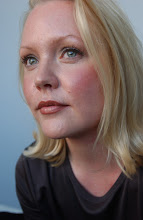Mothers lead the way
by Gillian Duncan
Dec 28, 2011
It took her more than two decades working within the company to reach the position of Pepsi-Cola president and chief executive for North America.
But Brenda Barnes, now 56, spent just one year in the role before stepping down.
Ms Barnes, who left to spend more time with her children, returned to the workplace seven years later in 2004 and joined Sara Lee as president and chief operating officer before later moving up to chief executive and chairwoman. She stepped down last year after suffering a stroke.
She may be one of the most high-profile examples of women who opt out at the top, but she is by no means alone.
"Most of them are mothers and they are trying to balance so many things. The workplace isn't exactly very adaptable to supporting their schedules and everything they have to do," says Cari Guittard, an adjunct faculty member of Hult International Business School, which has a campus in Dubai.
But companies could be missing out because women, and particularly mothers, can make good leaders.
Ms Guittard recently spoke at an event in Dubai about women in leadership organised by Stanton Chase, an executive search firm. She says a chief executive admitted to her that in a perfect world he would have women running his companies. "He said mothers in particular are able to deal with crises and chaos very quickly and they are also able to focus and get multiple things done," Ms Guittard recounts.
"He shared with me that women are fantastic multi-taskers and they think in a very circuitous fashion. He said in that sense in a leadership role they are fantastic."
Research by the Thunderbird School of Global Management that Ms Guittard has been involved in suggests women are also strong in three areas linked to successful global careers: intellectual, psychological and social capitals.
"Intellectual is when you study something, go to school or seminars; psychological is what you learn when you work with people cross culturally, it's more of an emotional intelligence area; and social capital is really building up an ability to listen, network and develop customer relationships," she adds.
But other research by Stanford University suggests that women who possess masculine qualities such as aggression received more promotions and had greater long-term success in their careers.
Ms Guittard, who is also senior associate at Global Strategic Partners and an adjunct faculty member at USC Annenberg School for Communication says there is a growing awareness that companies with female board members tend to be more successful. But the realisation is not yet translating into more women board members.
To make the most of their talents, workplaces should showcase women's talents alongside men's.
Governments also have a role to play in increasing women leaders in the workplace and many, including the UAE, are making significant effort in this regard, says Panos Manolopoulos, a vice chairman at Stanton Chase International. "But it is women themselves that will make the difference," he adds, saying women should put themselves at the forefront and allow themselves to shine.
Providing resources which allow women to maintain a work-life balance will also help. Companies in the West like Google and HP have that down to an art, but it seems that organisations in the Emirates have some catching up to do.
"In the UAE what we heard from almost every woman who was a mother, and many of them work for huge multinationals, they felt that there was an expectation that they had to be at the office 12 or 15 hour days," says Ms Guittard.
She says women who recently took part in a pocket MBA course in Dubai organised by Hult reported receiving no recognition for the fact that they are mothers who balance work with family life - despite the fact that some may be more efficient in work because of it.
"I think rewarding efficiency and providing flexibility is huge, but it is something that's not being recognised right now and it's forcing a lot of women to make a choice: do I continue or do I opt out?" she adds.
gduncan@thenational.ae
Monday, January 2, 2012
Subscribe to:
Comments (Atom)
